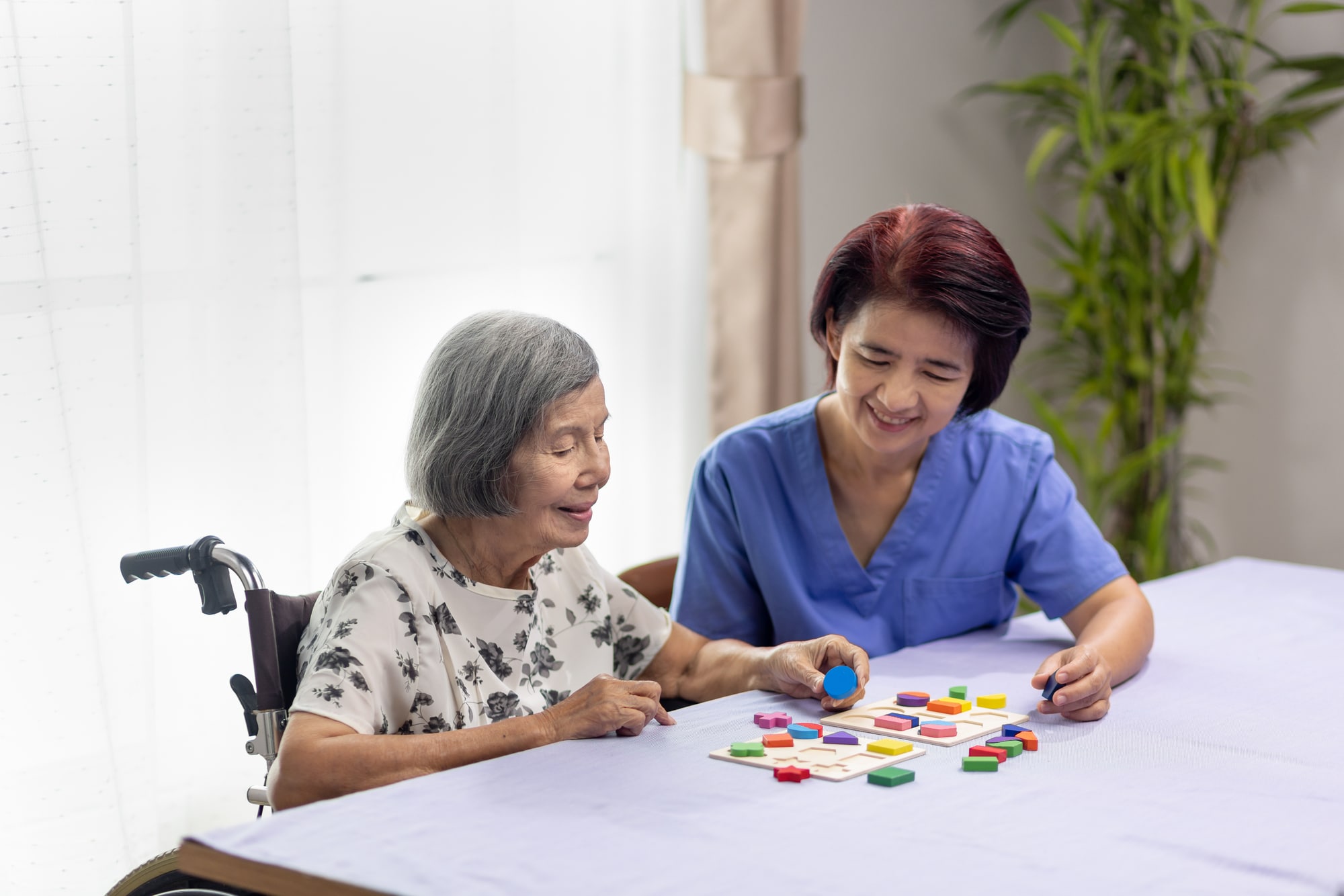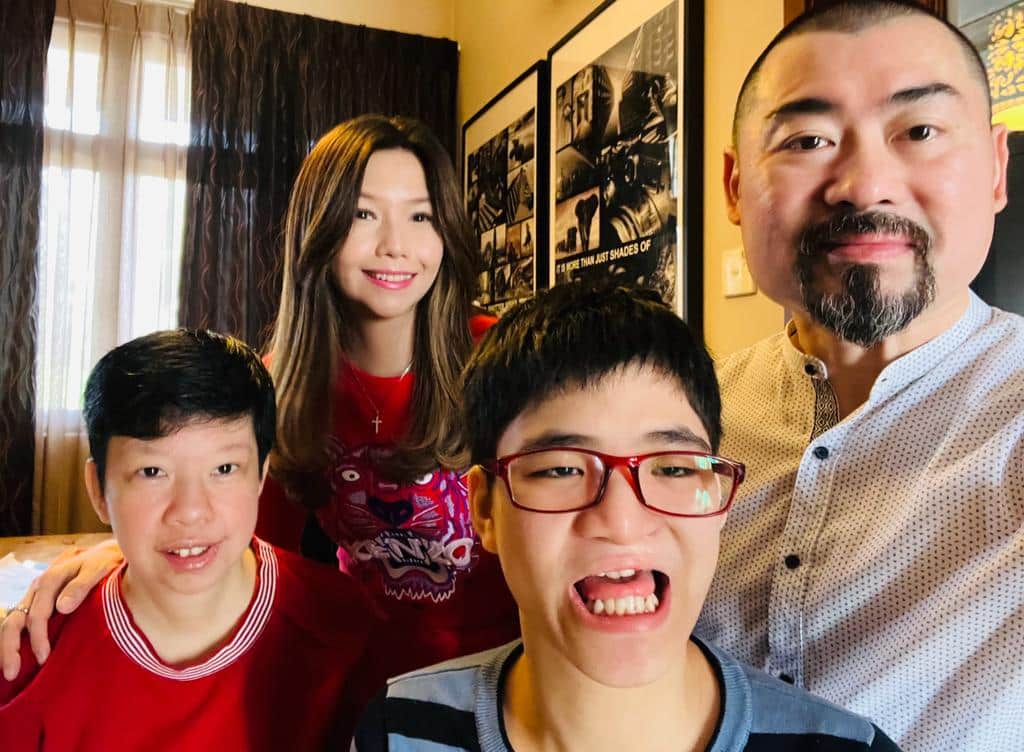Even if you forget, God still remembers: How to protect our faith when dementia hits
by Christine Leow // October 22, 2024, 1:35 pm

At the SLEC Symposium, speakers addressed the question of how to minister spiritually to those with dementia. Photo from Depositphotos.com.
The statistics are sobering.
About one in 11 people aged 60 and above in Singapore has dementia. This is the latest figure from an Institute of Mental Health (IMH) study in 2023. By 2030, the number of those with dementia is expected to rise to 152,000.
How does dementia affect faith and how can we care for the faith of those with dementia?
The odds worsen with age. By age 85, about half the population will show symptoms of dementia.
It was therefore timely that St Luke’s ElderCare CommCare Symposium 2024 (September 20) dealt with the topic of “Dementia and Spirituality: Building Connections, Conversations and Collaborations”.
At the heart are the questions: How does dementia affect faith and how can we care for the faith of those with dementia? Bishop Emeritus of the Methodist Church in Singapore, Dr Robert Solomon, addressed this as he talked about “The Spirit Within”.
Here are highlights of his sharing.
Living with dementia
It might be as innocuous as forgetting a recent conversation or appointment, or repeating questions. Over time, it might progress to displacing things or putting things in wrong places.
“Like spectacles in the fridge. You don’t understand how this happens, but that’s what happens,” said Dr Solomon.

Dr Robert Solomon shared biblical and practical tips on how to manage the spirituality of and minister to those with dementia.
This may progress to getting lost as visual and spatial abilities deteriorate, confusion, disorientation, hallucination, losing track of time and struggling with new information or skills.
“Questions arise as to what we ought to be doing when there is God in the life of a dementia patient.”
“Can you imagine how scary it is, what sort of world are you living in when you have difficulties performing familiar tasks. like making tea and you suddenly forget how to do it?”
As it gets more serious, there may be difficulties in making decisions and solving problems, personality changes, inappropriate behaviour or dressing, mood swings and, eventually, social withdrawal.
All these because the neural connections are affected, resulting in dementia.
“The sense of lost-ness can be very acute and very difficult to understand both for the sufferer and for the caregiver.
“So a lot of questions arise as to what we ought to be doing when there is God in the life of a dementia patient.”
To answer that, Dr Solomon urged the participants to look at the “very central question” of what the Bible has to say about what it means to be human.
1. Human beings are created in the image of God
First, to be human is to be a created being. The creation account in Genesis describes how God created the human race, said Dr Solomon. Not only that, humans were created in the image of God or imago dei in Latin (Genesis 1:27).
“He has given us that capacity to be aware of Him.”
“The fact that we are created in His image is enough to say that we are human beings,” said Dr Solomon.
“Therefore, we cannot judge somebody who has lost his memory from dementia as worthless. They are created in the image of God and that dignity cannot be taken away, not even by dementia.”
But what does it mean to be made in the image of God? Beyond the ability to reason, the presence of a moral consciousness which gives man the sense of right and wrong, the ability to create, being made in God image means “a relatedness to God” that allows us to connect with God.
“The Bible says that God has set eternity in our hearts (Ecclesiastes 3:11) so He has given us that capacity to be aware of Him.”
God remembers, when we can’t
If that awareness is lost because of dementia, Psalm 112:6 comforts us.
Said Dr Solomon: “Is it an over claim that we will be remembered forever? I think it’s divine memory that this verse speaks about. A righteous person will be remembered by God forever. As long as He remembers you, you exist.
“My faith in God tells me, even if I suffer from dysfunction, even if I lose my mind, I will never lose my soul and my future.”
Ministering the love, if not the message
Dr Solomon cited the example of Dutch priest and theologian Henri Nouwen to encourage the right attitude when tending to the faith of those whose mental faculties are compromised
For a decade, Nouwen was a chaplain at Daybreak, an institution for adults with severe mental dysfunctions.
“Though a person who’s suffering from dementia may not relate with God rationally, there’s a different dimension of their lives that still can connect with God.”
When asked why he personally tended to patients when attendants were available to care for their daily tasks, he replied: “That’s how I am to God every morning, spiritually.
“I forget to take care of myself. I become so dependent that He does the equivalent of brushing my teeth, feeding me, dressing me, handling my drool.
“It reminds me that when I minister, I’m more ministered to. That’s why I do it.”
When conducting services for those with dementia, keep it short and find a way to communicate the love of God.
“They may not understand the sermon, but they understand the benediction.
“I go to each of them, I give them a hug, and I put my hand on them and say, ‘God loves you’. They can understand that. They understand love, understand acceptance.
“I think that tells us something that though a person who’s suffering from dementia may not relate with God rationally, there’s a different dimension of their lives that still can connect with God.”
This can be extended even to those who are not yet of the faith.
“Tell the person how much he is loved by the God who created all of us. It’s not just a statement, but by acts in the way that the person is accepted, loved, honoured, cherished.
“To be able to communicate that you’re cared for, we love you, is to mediate God’s love to that person.”
2. Human beings are social beings
When God created man, He looked at Adam and told him he was incomplete (Genesis 2:18). So He introduced marriage, then family, then nations and then the world. From the beginning, God’s intention was for there to be a community.
By the New Testament, Jesus encourages us to love our neighbours and the picture of heaven in Revelation is one with “a crowd of worshippers”, said Dr Solomon.
Depend on collective memory
Theologian David Peck struggled with relating to his mother who suffered from dementia. She had forgotten most things, including Jesus and her relationship with God.
“I need you to minister to me, to sing with me, pray with me, to be my memory for me.”
But he came to realise that while she no longer had personal memory, when she went to church with fellow Christians, their collective memory of the faith sustained her.
“She goes to church, she hears some familiar hymns, she hears some familiar Bible verses, she meets some people, and somehow, in the mystery of that Body life, God sustains her.
“So that’s why he felt very convinced that people like her ought to be in church, that the church should welcome people like her and incorporate them into the Body life.”
Added Dr Solomon: “The dissolution of myself, my personality, my very essence, my relationship with God needs increasing support from you, my other in the Body of Christ.
“I need you to minister to me, to sing with me, pray with me, to be my memory for me.”
3. Human beings are embodied beings
We are made with physical bodies. Even in eternity, we will have bodies.
“When we are connected with Him, we not only die, but we also rise to new life.”
“Our hope is the resurrection of the body. We long for the time in eternity when we shall all be repaired completely, healed completely and we can function the way God intends us to function.”
Meanwhile, because of the Fall, we struggle and all of creation groans (Romans 8:22)
The hope of creation being renewed gives us hope “every time we see a sick person, a person dying of cancer, a widow, a person suffering from dementia” because we remember that the broken world is not “the last line of the story”.
“When we are connected with Him, we not only die, but we also rise to new life. We learn to look beyond our present experience and harbour the hope.”
RELATED STORIES:
3 ways we can redeem dementia, instead of giving in to hopelessness
We are an independent, non-profit organisation that relies on the generosity of our readers, such as yourself, to continue serving the kingdom. Every dollar donated goes directly back into our editorial coverage.
Would you consider partnering with us in our kingdom work by supporting us financially, either as a one-off donation, or a recurring pledge?
Support Salt&Light


